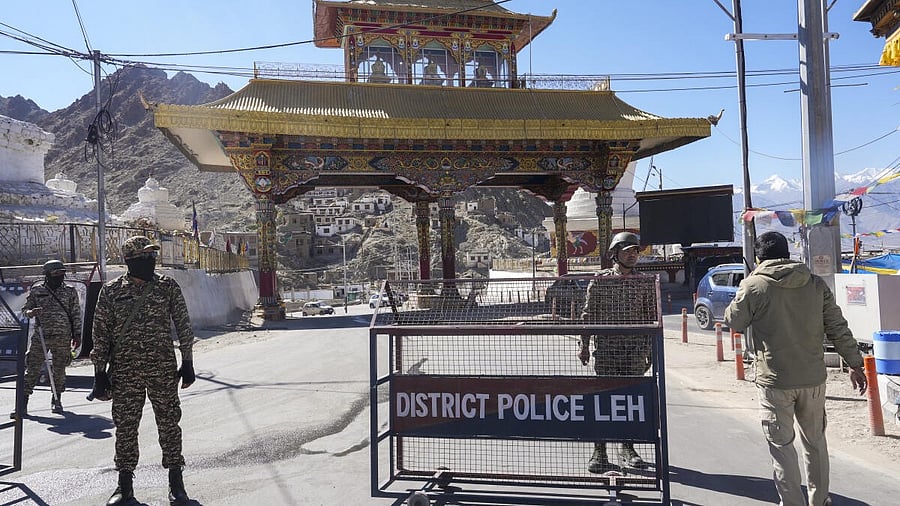
Curfew continues in Leh after Ladakh statehood protests
Credit: PTI photo
Srinagar: Nearly a month after violent protests rocked Leh, the dialogue between Ladakh’s groups and the Centre is set to resume, signaling a cautious return to engagement after weeks of tension and mistrust.
The Leh Apex Body (LAB) and the Kargil Democratic Alliance (KDA)—the two umbrella groups spearheading Ladakh’s agitation for statehood and constitutional safeguards under the Sixth Schedule—on Sunday announced that they will meet a sub-committee of the Union Ministry of Home Affairs (MHA) in New Delhi on October 22.
The meeting will also be attended by Ladakh MP Haneefa Jan, according to LAB co-chairman Chering Dorje Lakruk.
“We have been informed by the MHA about the meeting and are hopeful that this round of talks will yield a positive outcome,” Dorje said, adding that the invitation from the Centre comes as a welcome step after a prolonged stalemate.
The announcement comes two days after the Centre ordered a judicial inquiry, headed by a retired Supreme Court judge, into the September 24 clashes that left four people dead and dozens injured. The violence broke out during a hunger strike called by prominent climate activist Sonam Wangchuk to press for talks on Ladakh’s key demands—full statehood, job and land protections, and inclusion under the Sixth Schedule that provides autonomy to tribal regions.
The protests, which turned violent near Leh’s Polo Ground, saw security forces firing tear gas and resorting to baton charges after mobs clashed with police. Over 50 people were arrested, and several others were injured in the ensuing chaos.
Among those detained was Sonam Wangchuk, a central figure in the movement, who was later booked under the National Security Act (NSA)—a move that drew widespread criticism from rights groups and political leaders.
The Ladakh agitation has its roots in the 2019 bifurcation of Jammu and Kashmir, which made Ladakh a Union Territory without a legislature. While the move initially sparked celebrations, concerns soon grew among locals over the absence of constitutional safeguards to protect land, jobs, and cultural identity in the strategically sensitive Himalayan region.
Since then, both LAB and KDA—representing the Buddhist-majority Leh and Muslim-majority Kargil districts respectively—have jointly pushed for statehood and inclusion in the Sixth Schedule. Their unity has been rare and politically significant, given the historical divide between the two districts.
However, talks with the Centre collapsed earlier this year after repeated rounds failed to produce tangible results, prompting renewed street mobilization and, eventually, the violent escalation in September.
Following the violence, the Centre’s decision to appoint a judicial commission was seen as an attempt to restore confidence and open space for dialogue. On Saturday, the LAB had demanded that a representative from Ladakh be included in the probe team, arguing that transparency and local participation were vital for credibility.
For now, both the Centre and Ladakh’s representatives appear eager to avoid another breakdown. The October 22 meeting in Delhi will likely determine whether Ladakh’s agitation for greater autonomy continues on the streets—or finally finds resolution across the table.